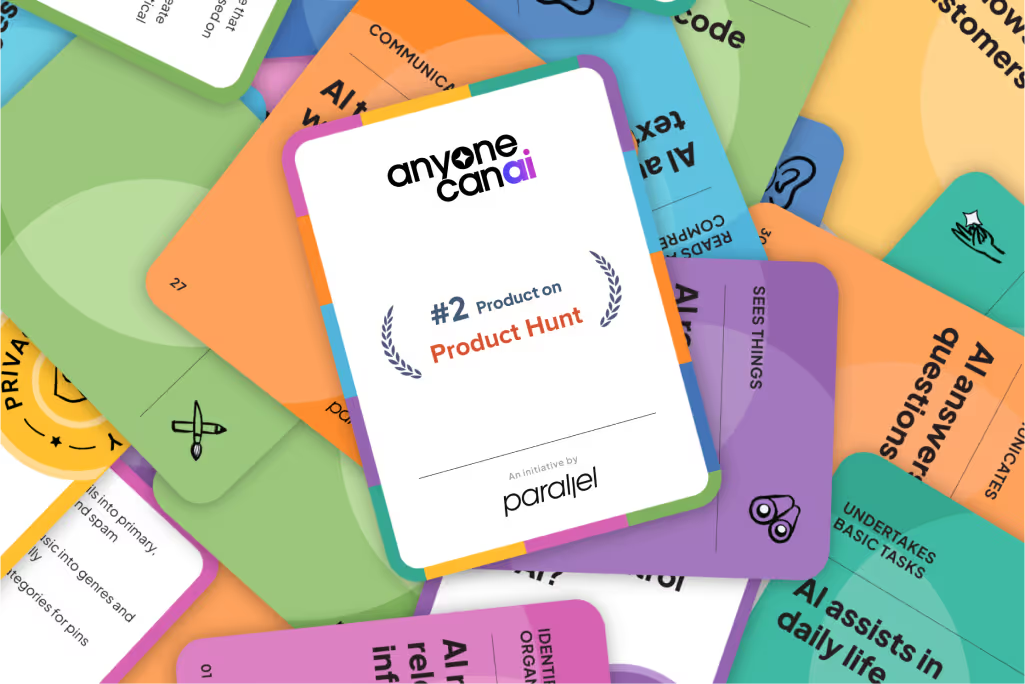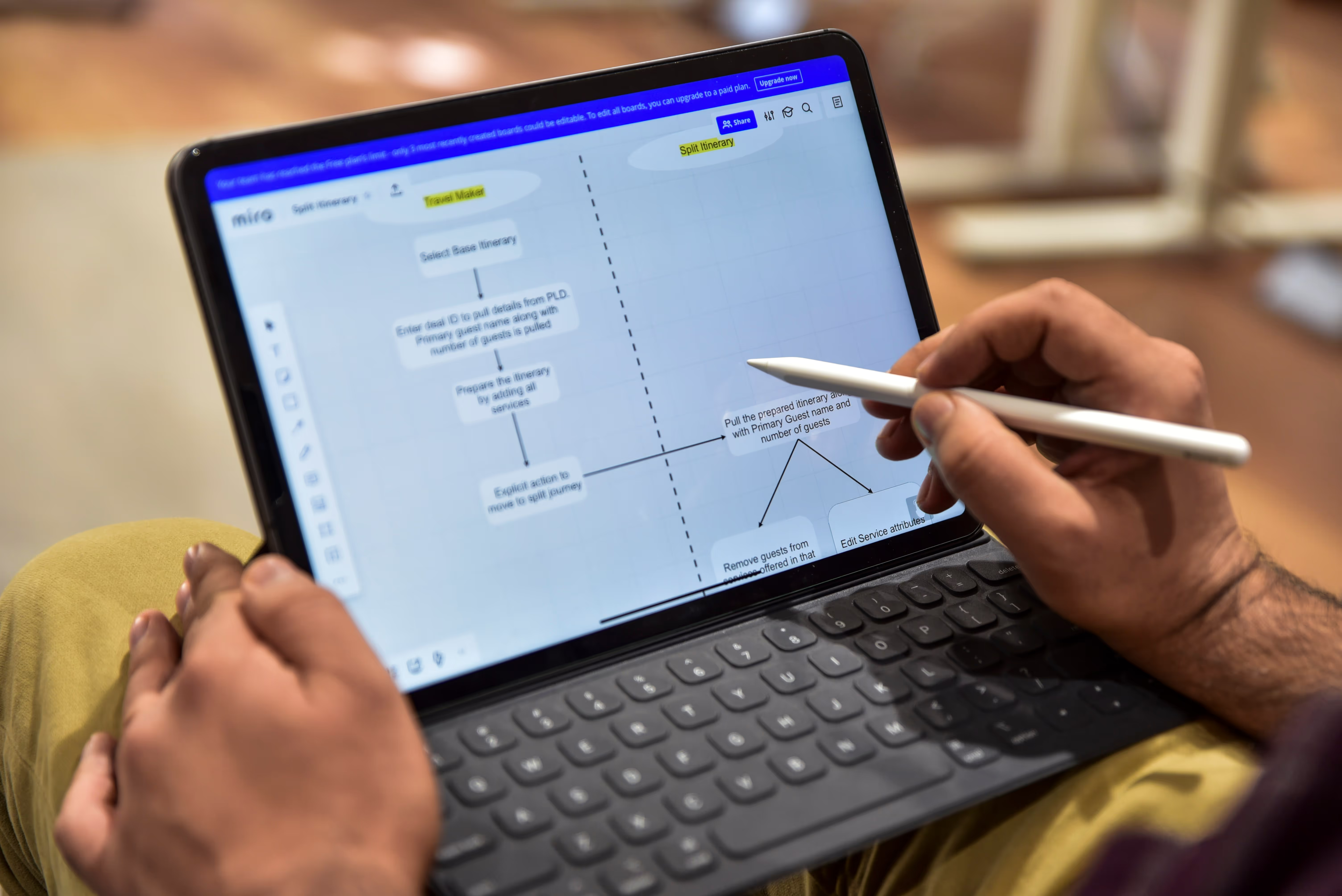Top 10 Startup Web App Development Companies (2026)
Discover leading web app development companies for startups offering scalable, user‑friendly applications tailored to your business needs.

I’ve seen more startups fail from a bad partnership than a bad idea. The most critical decision an early-stage founder makes is not what to build, but who to build it with. The right startup web app development company is not a vendor; they are your first product partner, co-authoring your trajectory from day one.
The right team doesn't just build your vision; they clarify it, challenge it, and make it resilient. This guide moves beyond checklists to offer a framework for identifying a partner who shares your pace, absorbs your vision, and possesses the strategic maturity to navigate the uncertainty of building something new.
Quick Answer: Best Startup Web App Development Companies in 2026
If you're an early-stage startup looking for a web app development partner in 2026, these three companies stand out:
- Parallel – Ideal for AI and SaaS startups seeking a strategic, design-led partner.
- Toptal – Great for scaling teams quickly with elite freelance developers and designers.
- Technoyuga Soft – A budget-friendly choice for early-stage MVPs needing flexibility and speed.
Explore the full list of 10 vetted companies below and learn how to choose the right one based on your startup’s stage, goals, and budget.
What makes a top startup web app development company?
The markers of a great partner go deeper than a polished portfolio. They are rooted in a modern product development mindset that prioritizes learning, speed, and long-term resilience. For founders and business app developers, these are not just features—they are foundational principles that separate success from struggle.

1) Agile development teams that iterate fast
True agility for a startup isn't about ceremonies; it's a cultural commitment to learning. It’s the fusion of Design Thinking's problem-finding with Agile's efficient problem-solving. As the Agile Manifesto outlines, the focus is on "individuals and interactions over processes and tools" and "responding to change over following a plan".
A partner who rigidly adheres to a pre-defined scope without question is demonstrating a "waterfall" mindset, even if they use two-week sprints. A true agile partner welcomes new information from user testing or market shifts and collaborates on adapting the product backlog. Their process is a living system, not a fixed contract.
In our experience, you can diagnose a potential partner's true agility by observing how they react to a hypothetical pivot during initial conversations. Their response reveals whether they are a flexible partner or a rigid vendor.
2) MVP development services—build lean, test early
The Minimum Viable Product (MVP) is your most powerful tool for de-risking your business. Its primary output isn't code; it's validated learning. A top-tier startup web app development company understands this distinction and builds for learning speed.
According to research from the Nielsen Norman Group, an MVP is a tool to "maximize feedback on your core value proposition," not just a stripped-down version of a full product. This process must start with user research
before a line of code is written, a practice that separates strategic partners from mere code shops.
The real return on investment of a well-executed MVP isn't just the product that gets built; it's the six to twelve months of engineering salary and runway that wasn't wasted building the wrong thing. A founder should evaluate a partner not on the volume of features they promise, but on the rigor of their process for discovering the fewest essential features required to learn.
3) Focus on user experience (UX) design
A product mindset is a user-centric mindset. A great partner doesn't just ask what to build; they obsess over why and for whom. They understand that a poor user experience is a direct barrier to adoption. In fact, studies show 88% of users are less likely to return to a website after a bad experience.
This means prioritizing intuitive navigation, clear feedback mechanisms, and designing for accessibility from the start. It involves creating user flows and wireframes to map the user's journey and test assumptions long before development begins. A partner with a strong UX focus ensures the final product doesn't just work—it feels right.
4) Custom web application capabilities, not just templates
Startups are built on unique ideas that solve specific problems. A template-based solution can't capture unique business logic or scale effectively. A top partner must have deep expertise in building a custom web application from the ground up.
This capability ensures that the product can evolve with your business, integrating complex features and workflows as you grow. Partnering with an experienced web development agency ensures that the product can evolve with your business, integrating complex features and workflows as you grow. It's the difference between a temporary solution and a lasting foundation.
5) Building scalable web platforms that grow with the startup
The technical decisions made for your MVP have long-term consequences. A strategic partner builds a foundation that can scale from ten users to millions without a complete rewrite. This means architecting for growth from day one.
This is where cloud-based applications become non-negotiable. Platforms like Google Cloud and AWS provide the flexibility, cost-efficiency (pay-for-what-you-need), and automatic scaling that startups require to grow without friction. A partner with deep cloud expertise builds a resilient, future-proof platform.
Finally, building mobile-friendly web apps is a baseline expectation. With the majority of web traffic coming from mobile devices, a product must be designed for every screen. This isn't just about responsive design; it's about a product mindset that considers the mobile context from the very beginning.
Top 10 startup web app development companies
This list is a starting point, not a ranking. Each startup web app development company here has a distinct strength. The goal is to find the one whose approach best matches your startup's specific stage, needs, and culture.
1) Parallel
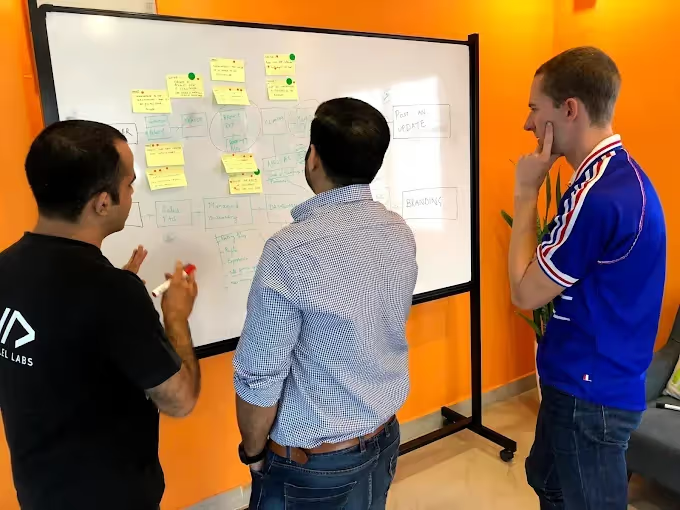
As a design and product collective, we focus on building meaningful digital products, especially for AI and SaaS startups. Our approach is that of a deep, strategic partner—we don't just execute a plan; we help shape it. We're known for our creativity, innovation, and a commitment to building products that are not just functional but transformative. We believe in outcomes over deliverables and candid partnership.
2) EitBiz (Extrovert Information Technology)

Ranked among top web app development firms, EitBiz is a reliable, full-service partner. Client reviews consistently praise their professionalism, attentiveness, and strong communication. They offer end-to-end development services and excel at solving complex problems, making them a solid choice for founders who need a dependable team to manage the entire product lifecycle, from concept to launch and support.
3) Toptal
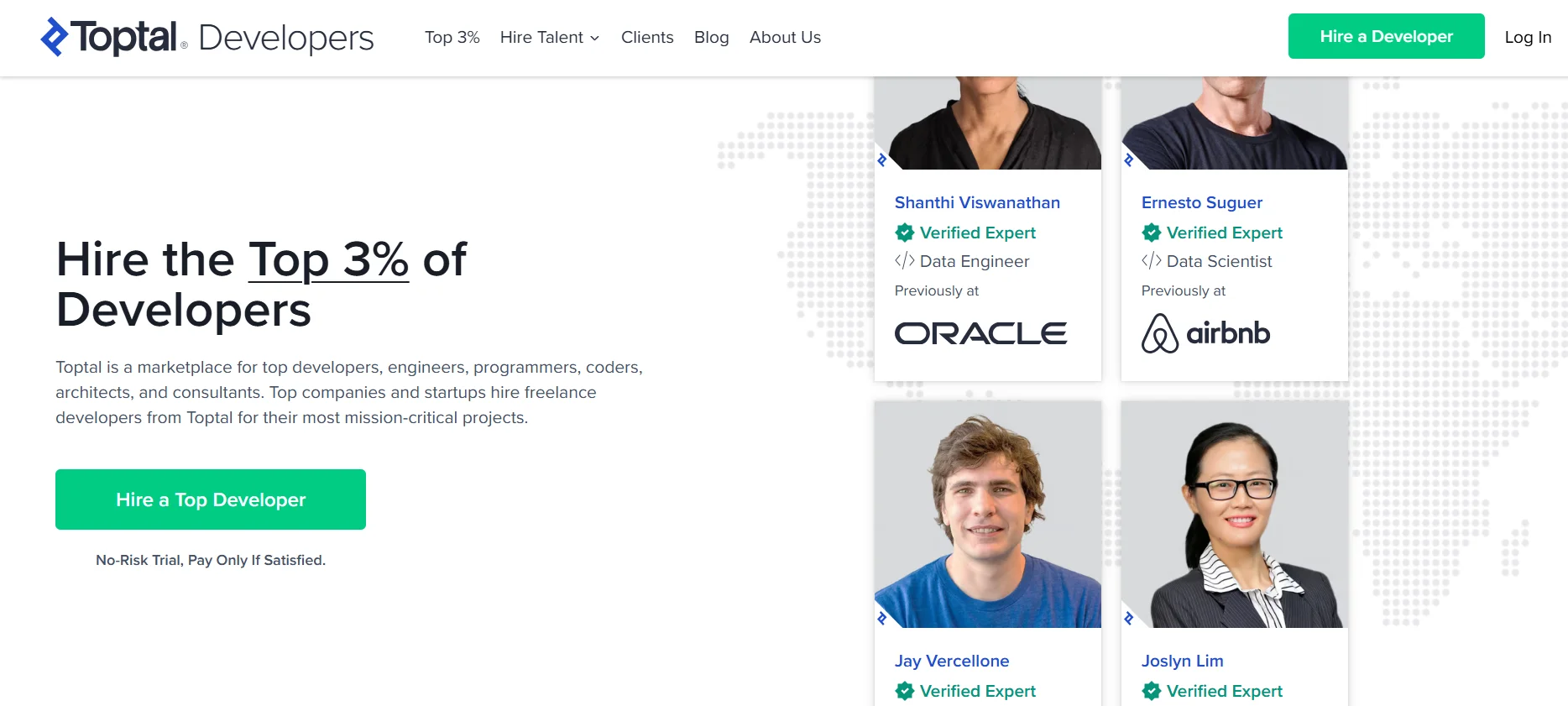
Toptal operates as a network of elite, pre-vetted freelance talent. Their model is built for speed and flexibility, allowing startups to quickly augment their teams with specialists in custom web apps, UX/UI design, and more. While clients praise the high quality of talent, some reviews note that their premium model comes with higher costs and mixed experiences with customer support, making them best suited for targeted, high-impact hires.
4) Cleveroad

Featured in top US development lists, Cleveroad has a strong reputation for full-cycle development. They are consistently praised for delivering high-quality work on time and within budget. This makes them an excellent choice for startups looking for a balanced partner who offers a strong combination of quality, effective project management, and cost-effectiveness without significant compromise.
5) OpenXcell
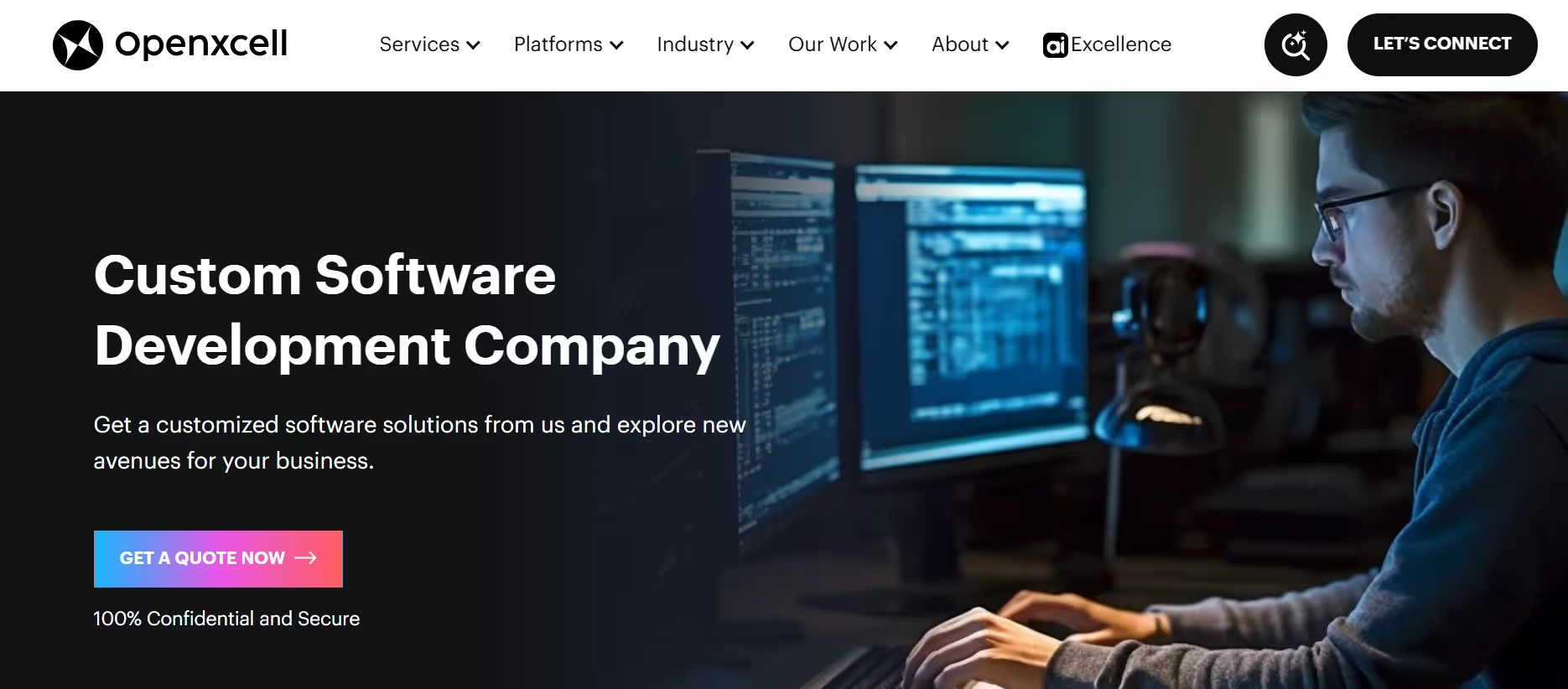
Also recognized as a top US firm for 2025, OpenXcell is known for building scalable and robust solutions. Their expertise in AI, data engineering, and enterprise-grade applications makes them a strong partner for startups with complex technical requirements or those planning for massive scale from day one. Clients highlight their technical expertise and ability to deliver high-quality, professional products.
6) Imaginovation
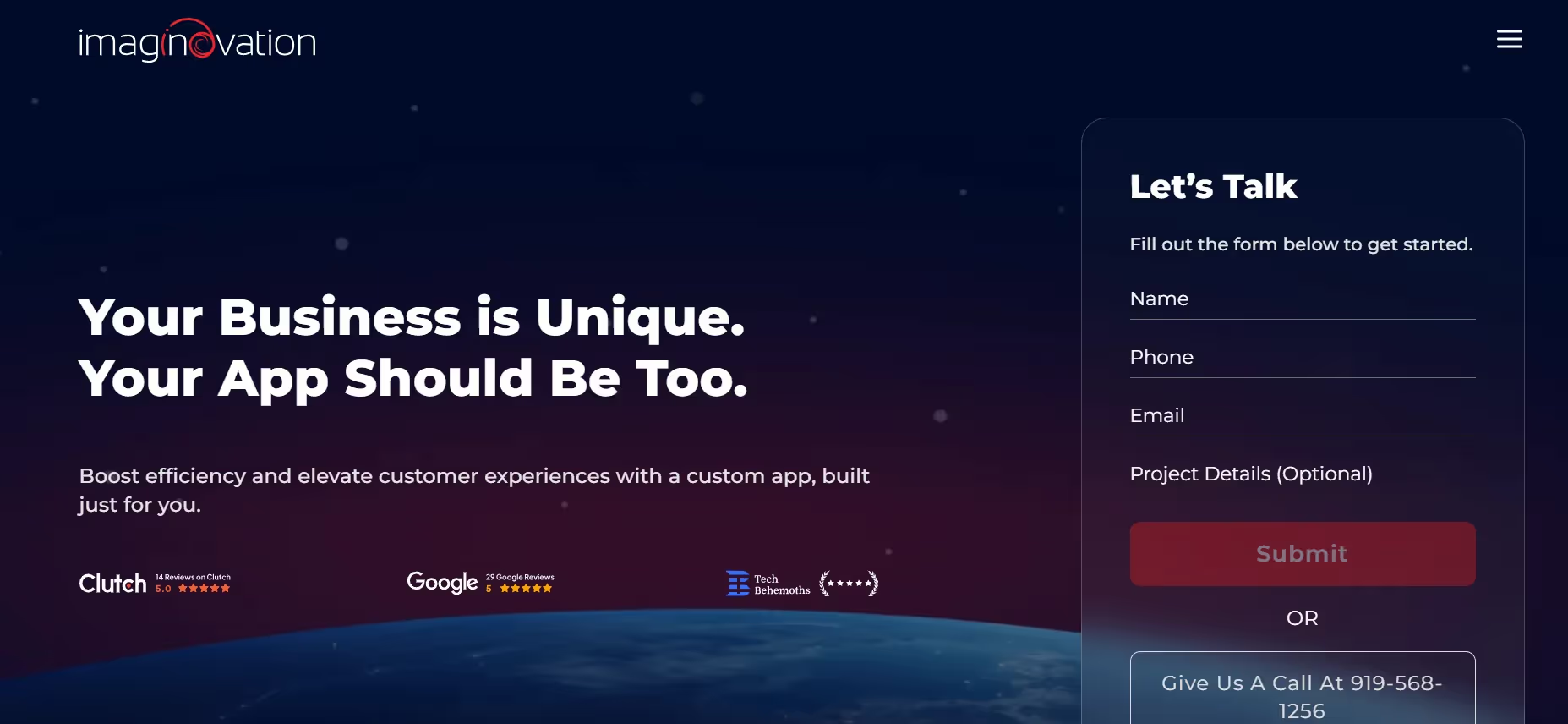
Imaginovation excels at building custom, full-stack web applications and is highly praised for its collaborative and communicative approach. They operate as an extension of their client's team, engaging deeply in the development process. For founders who value a transparent, hands-on partnership and want to be involved in every step, Imaginovation's culture of mutual respect and teamwork is a significant asset.
7) thoughtbot
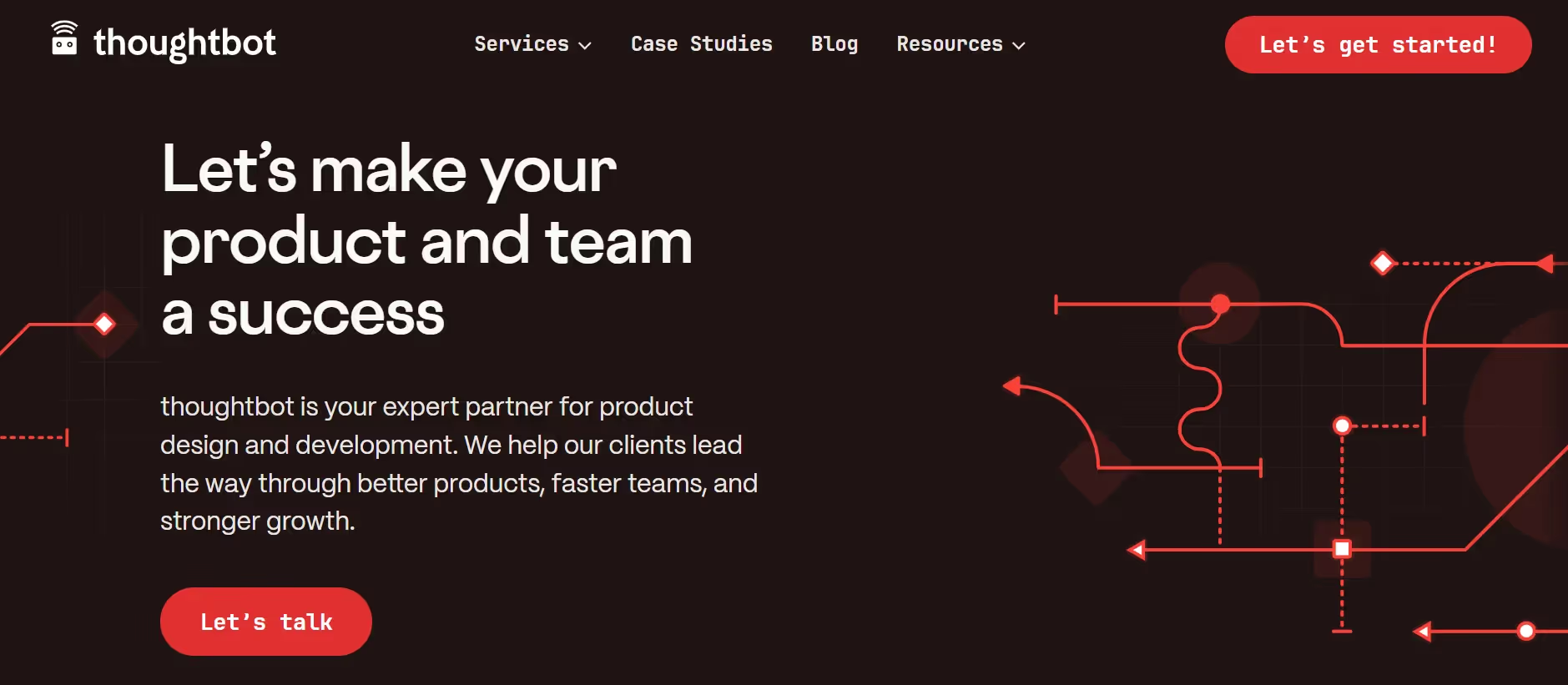
Specializing in Ruby on Rails, thoughtbot is renowned for its professionalism, disciplined project management, and high-quality custom web app builds. More than just a development shop, they are known for instilling best practices and mentoring their clients' internal teams, effectively leveling up a startup's engineering culture. They are an ideal partner for tech-focused founders who want to build a product and a great team.
8) Goji Labs
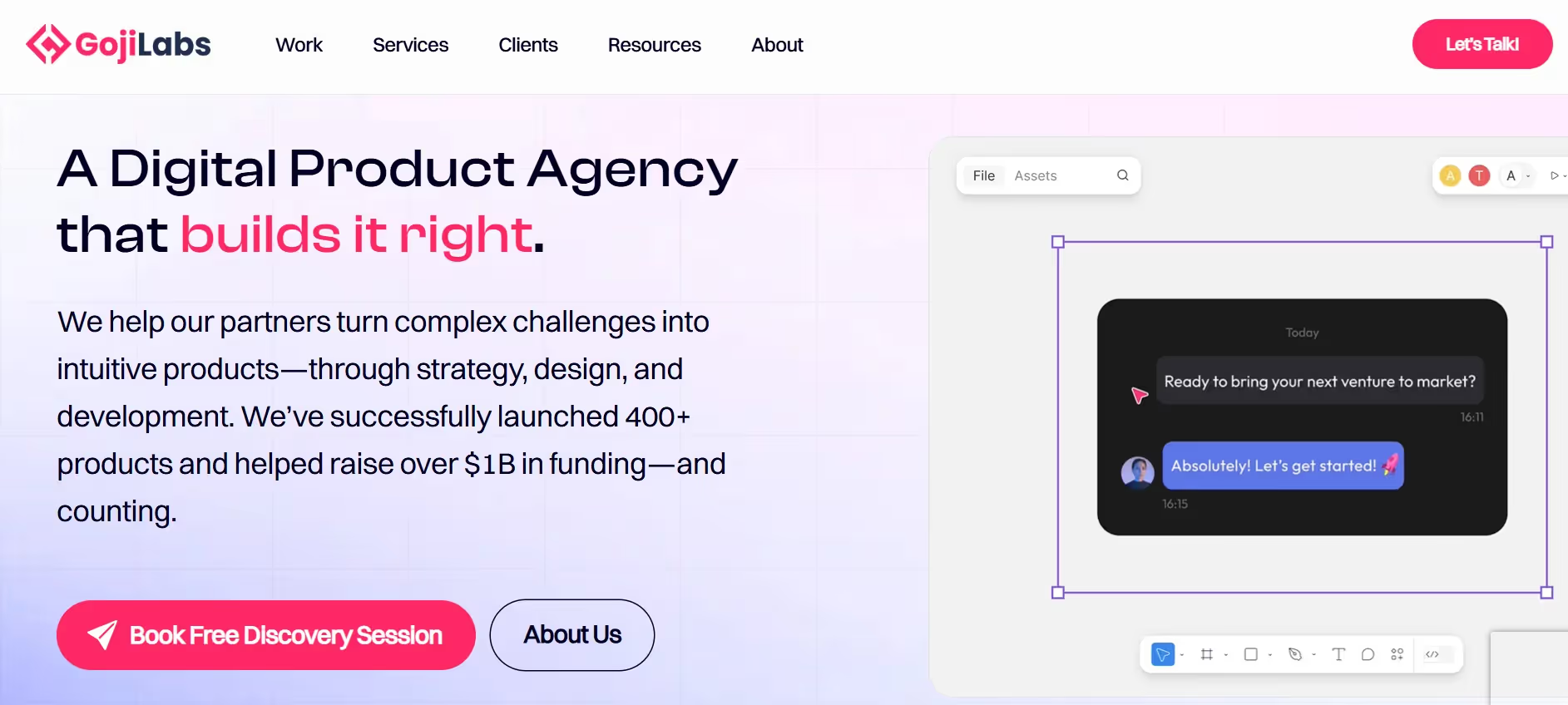
Goji Labs is an award-winning digital product agency focused on strategy, UX, and development. Having launched over 400 products, they are experts at guiding founders from an initial idea to a well-designed, market-ready product. Their strengths in product strategy and user-centric design make them a perfect fit for early-stage startups that need a partner to help them define their vision, validate their assumptions, and create a beautiful, intuitive user experience.
9) Talentica Software
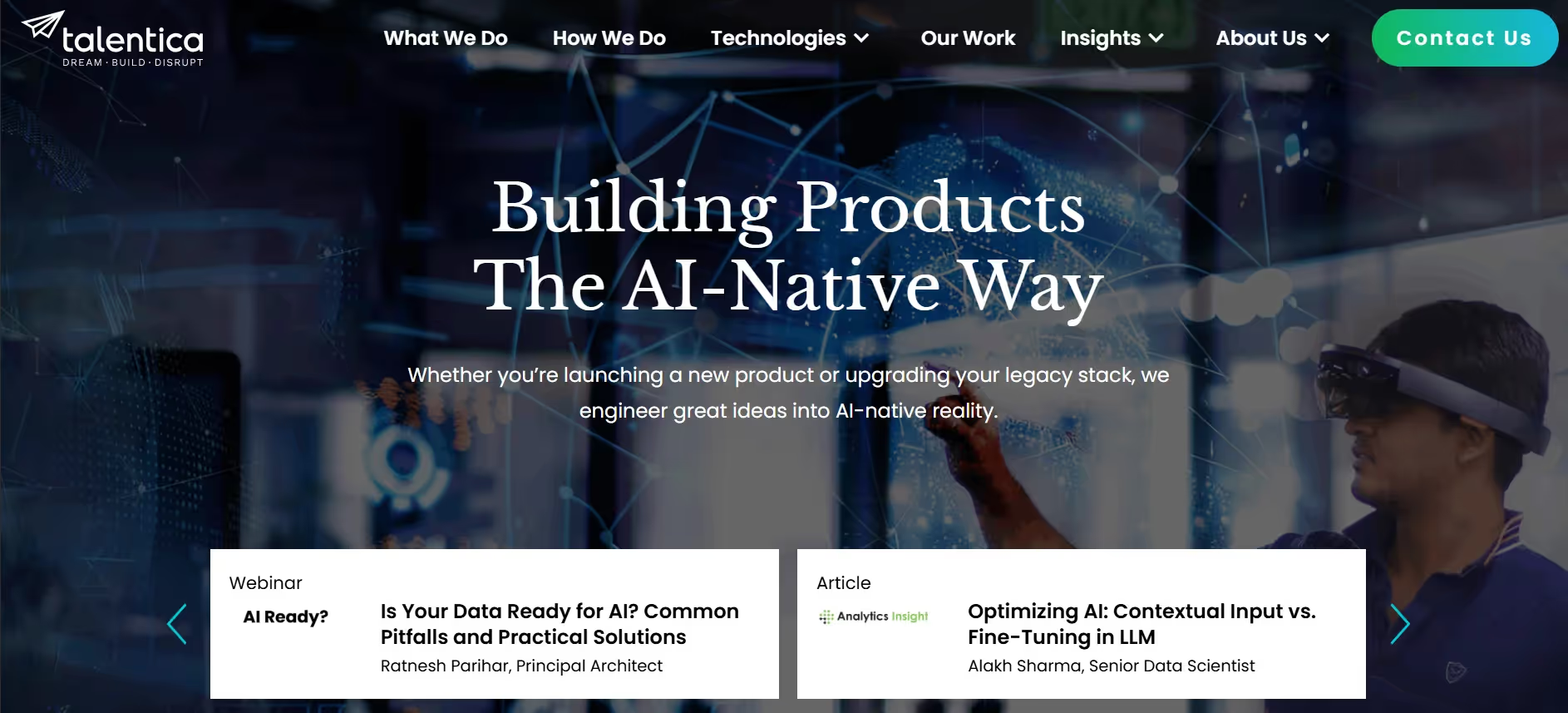
Talentica provides product engineering specifically for startups, with a deep focus on building AI-native, scalable web platforms. They are known for their technical expertise, proactive problem-solving, and ability to tackle cutting-edge challenges. For founders building in complex domains like AI, data science, and cloud infrastructure, Talentica acts as a dedicated, high-ownership technology partner that can drive innovation from the ground up.
10) Technoyuga Soft
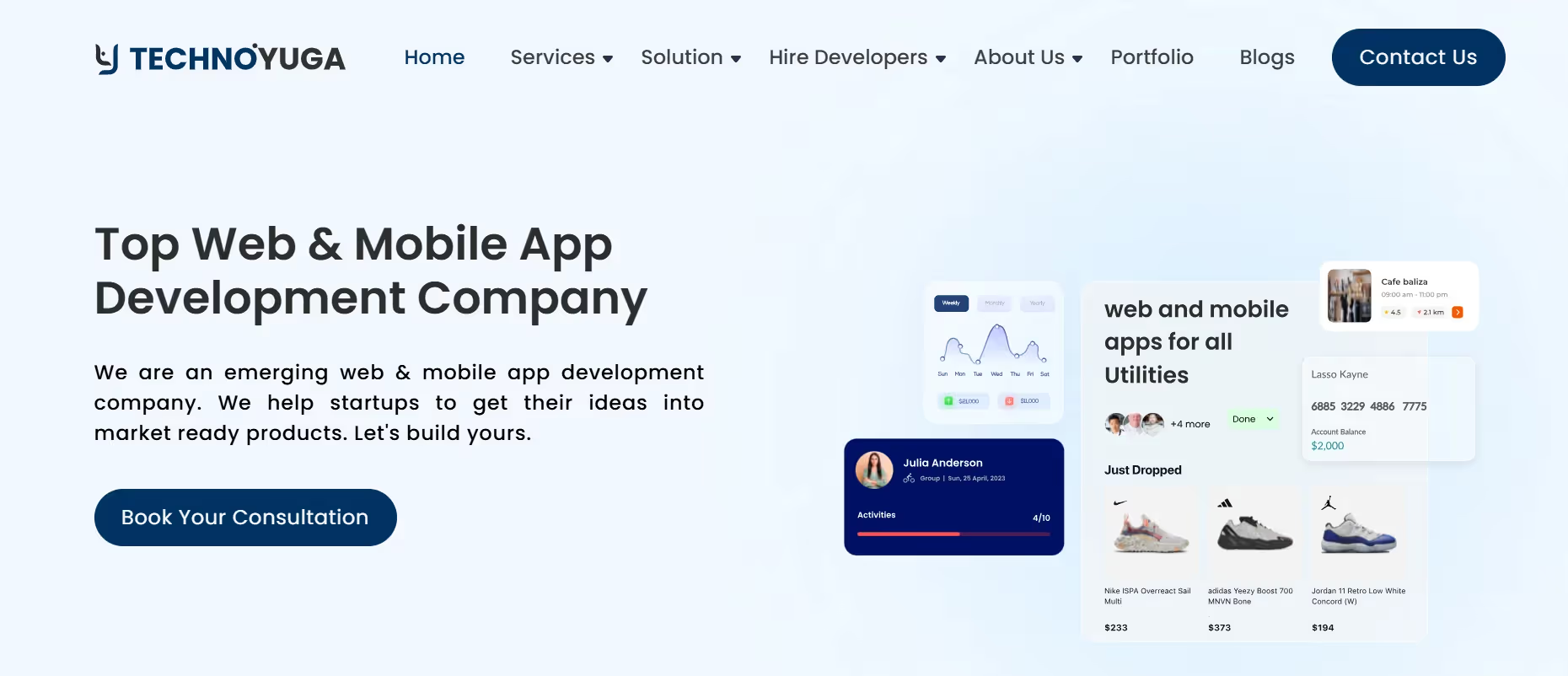
As a startup-friendly startup web app development company, Technoyuga focuses on web and mobile development for early-stage, budget-sensitive projects. Their small team structure and flexible engagement models make them an accessible partner for founders needing to build an MVP affordably. They position themselves as true technology partners who care about their clients' success, offering support beyond just development.
Startup Web App Development Partner Snapshot
How to choose the right company for your startup
Moving from a list to a decision requires a framework. It’s about asking the right questions to uncover the truth behind the sales pitch.
1) Culture & communication fit
A true partner is candid. They challenge your assumptions constructively and aren't afraid to say "no" to a bad idea. The best way to test this is to propose a short, paid "Discovery Sprint" before signing a long-term contract. This is the ultimate test of cultural fit and communication under real-world pressure.
2) Pricing and engagement model
The two common models are fixed-price and hourly (time & materials). A fixed-price model is predictable but punishes iteration. An hourly or retainer model is flexible but requires oversight.
A partner’s preferred model reveals their philosophy. A fixed-price contract incentivizes completing a pre-defined scope as quickly as possible. A flexible, value-based model (like a retainer for a dedicated team) aligns incentives around a shared goal: creating the most value for the user. It signals that the partner understands the iterative nature of startup product development.
3) Experience in building mobile-friendly, scalable apps
Look past the glossy screenshots in a portfolio. Ask to see evidence of their process: wireframes, user flows, and prototypes from past projects. Ask for case studies that detail how they navigated a pivot or used user feedback to change direction. This reveals a product mindset, not just visual design skill.
4) Proof of MVP delivery and iterative design
During your interviews, ask these questions to separate strategic partners from execution-focused vendors:
- "Based on what you know of our idea, what is the biggest risk we need to test first?" This tests their strategic thinking.
- "Can you describe a time a client's request was wrong, and how you handled it?" This tests their candor.
- "How would you define success for our MVP, beyond just shipping it?" This tests if they think in terms of business outcomes.
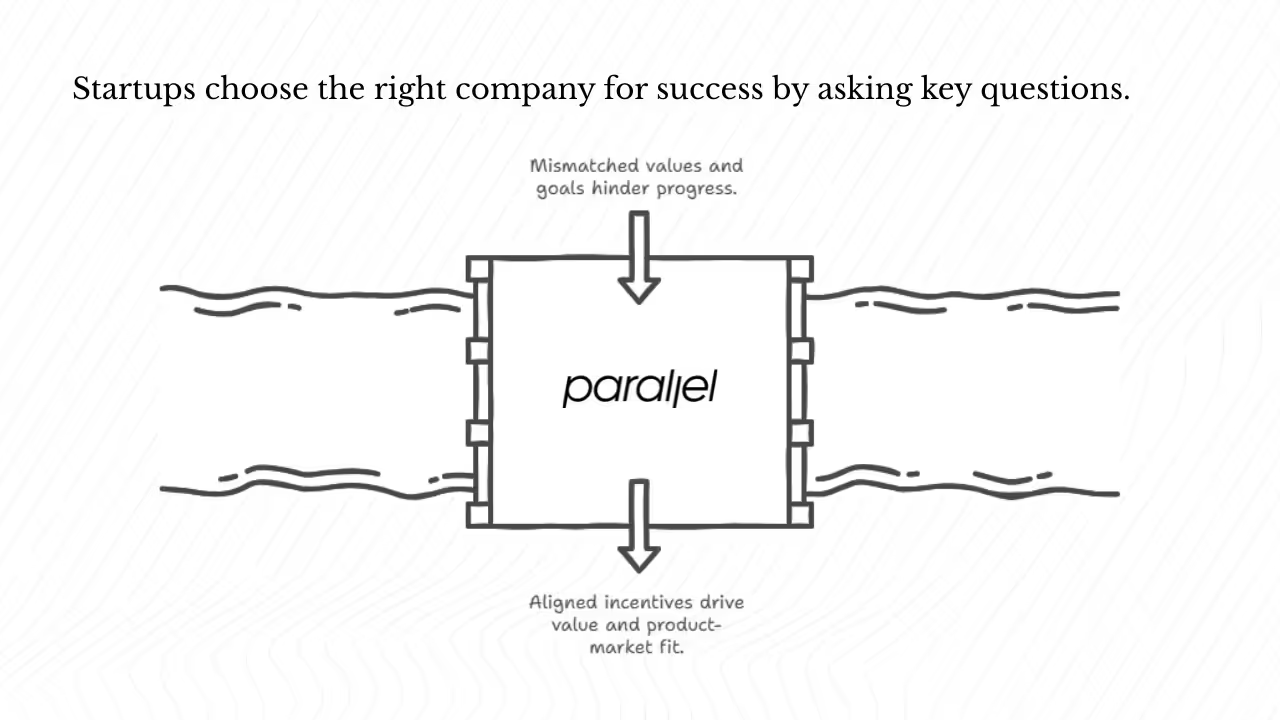
Comparison Table: Top Startup Web App Development Companies (2026)
Why we built Parallel the way we did
We founded Parallel on these principles. We operate as a collective because we believe great teams, not rockstars, build great products. We focus on outcomes over deliverables because a fancy deck doesn't change a user's life—a working prototype does.
We insist on being candid partners because our job is to help you do the right thing, even when it's hard. We've seen this approach work with AI startups like Inhouse and health tech companies like Lume Health, where deep collaboration and rapid iteration were key to finding product-market fit. We built the startup web app development company we would want to hire.

Conclusion
Your choice of a startup web app development company is a foundational product decision. The right partner aligns with your needs for speed (MVP), vision (UX), and future growth (scalability). They share your pace and your passion.
Don't just ask, "Can they build my app?" Ask, "Can they help me discover the right app to build?" The answer to the second question is the one that matters.
FAQ Section
Q1. How much does it cost to start up an app development? For an early-stage startup, the initial cost is typically for building a Minimum Viable Product (MVP). The goal is to validate your core idea with real users without overspending. A focused MVP from a quality startup web app development company can range from $10,000 to $50,000, depending on the complexity of the core features required for learning.
Q2. How much does it cost to develop a web app? The cost varies significantly based on complexity. Based on market data, here are typical ranges :
- Simple Web App (e.g., portfolio, brochure site with basic features): $15,000–$25,000
- Medium Complexity Web App (e.g., e-commerce store, B2B SaaS with database integration): $25,000–$45,000
- Complex Web App (e.g., custom ERP, platform with real-time features): $50,000+ Rates also depend heavily on the development team's location, with US-based developers charging $100-$150 per hour versus offshore rates that can be as low as $20-$40 per hour.
Q3. How do I start my own app development company?
- Define a Niche: Specialize in a specific area, like being a startup web app development company for AI or fintech.
- Build a Portfolio: Create projects to showcase your skills, even if they are pro-bono at first.
- Assemble an Agile Team: Hire a small, cross-functional team that embraces iterative development.
- Structure Your Services: Focus on high-value offerings for startups, such as MVP development, Lean UX, and product strategy.
- Master a Modern Tech Stack: Offer expertise in scalable, cloud-native, and mobile-first technologies.
- Network and Build a Reputation: Position your firm as a strategic partner, not just a vendor, within the startup ecosystem.
Q4. How much does it cost to hire someone to build a mobile app? The cost to build a mobile app is substantial and varies widely. Industry surveys provide a clear picture of the investment required :
- VDC Research Survey: Found an average cost of $140,000 per app.
- Clutch Agency Survey: Indicated a median price of $171,450.
- Kinvey CIO Survey: Reported an average cost of $270,000 per app. Crucially, research from Forrester found that the initial development cost is often only 35% of the true two-year cost. Ongoing maintenance, updates, security, and support are significant, long-term expenses that must be budgeted for.







.avif)
